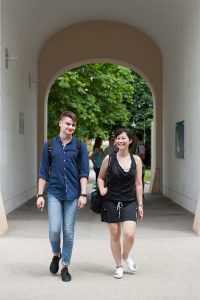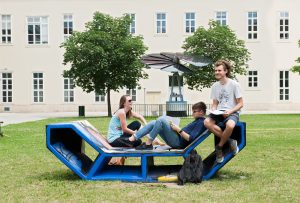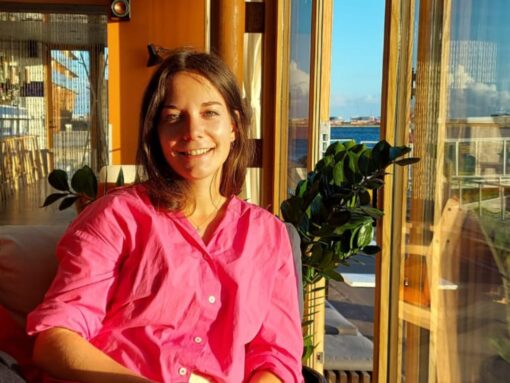A master’s programme – yes? No? And, if yes: Which one? This decision shapes your life – like a partner in a relationship does. #univie-staff Barbara Hamp describes which master’s programme is comparable to which model of living together and, therefore, makes it easier to arrive at a (relationship) decision.
If we compare a degree programme to a relationship, we could say that the bachelor’s programme is the phase of getting to know each other. In this first phase, we lay the foundations for a successful partnership and gain first experiences. During the master’s programme, the relationship is getting serious. The final major project means moving in with your partner for the first time (with your master’s thesis and master’s degree).

Like in many partnerships, after the first phase you have to ask yourself: Would I like to go ahead with my partner and our chosen way of life?
After having decided on a master’s programme, the next question arises: Which master’s programme, i.e. which longer-term relationship model, suits me best? After all, we all know the saying: Test therefore, who join forever (or at least for two years). There are some restrictions, but also possibilities: Your experiences from previous relationships (the bachelor’s programme) influence your choice of a master’s relationship.
Partner-Matching
During the admission procedure, we will check whether the partnership of your choice is legally possible (we check your previous education and other admission requirements, such as language skills or the completion of an entrance examination). The algorithms for this matching procedure are specified in the curriculum of the respective master’s programme. You can also check them in the profiles describing the master’s programmes. The Master Access Guide provides a brief overview.
The relationship models can vary greatly.

- You can, for one thing, follow the traditional way: You broaden the relationship experiences you gained during the bachelor’s programme in a consecutive master’s programme or in a relevant subdiscipline (e.g. bachelor’s programme in Biology -> master’s programme in Zoology).
- More open relationships are possible in master’s programmes in which you can choose your focus more individually: Depending on the modules and courses you complete during the master’s programme, your academic profile will look differently (such as in the master’s programme in History).
- Intercultural partnerships can emerge from interdisciplinary degree programmes – such as the master’s programme in Gender Studies – where different cultural (disciplinary) backgrounds meet. Different views are discussed with the aim of reaching a consensus on the basis of common research interests.
It is good to know that – also in a permanent relationship – you can allow yourself room for other things. For instance, you can also study a semester at another university under a mobility scheme during your master’s programme. This gives you the opportunity to go to another country during your master’s programme and see how the relationship develops.
It is getting serious
At the end of the master’s programme, the first major project is due: No, not the separation that was predetermined from the beginning, but rather the master’s thesis and examination. When you move in together, a real estate agent will help you in closing the deal. Students preparing for the master’s thesis and examination can get support in the form of writing mentoring or counselling to combat test anxiety. Using different support measures already from the start of your studies will pay off. This helps you get the key to your apartment (your master’s degree) in a timely and satisfying manner.




How to apply for Master’s program in University of Vienna
Hi! Please find all the information regarding your application here: http://blog.univie.ac.at/en/5-steps-for-admission-to-a-masters-programme/ Best regards, Social Media Team of University of Vienna